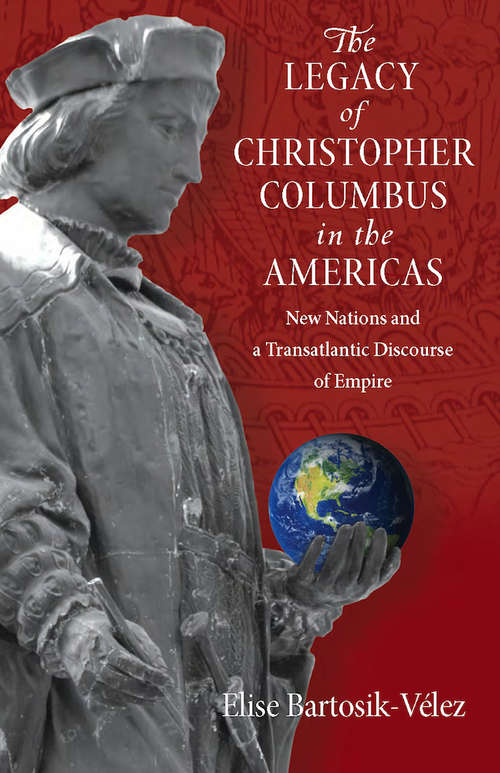The Legacy of Christopher Columbus in the Americas: New Nations and a Transatlantic Discourse of Empire
By:
Sign Up Now!
Already a Member? Log In
You must be logged into Bookshare to access this title.
Learn about membership options,
or view our freely available titles.
- Synopsis
- Why is the capital of the United States named in part after Christopher Columbus, a Genoese explorer commissioned by Spain who never set foot on what would become the nation's mainland? Why did Spanish American nationalists in 1819 name a new independent republic "Colombia," after Columbus, the first representative of empire from which they recently broke free? These are only two of the introductory questions explored in The Legacy of Christopher Columbus in the Americas, a fundamental recasting of Columbus as an eminently powerful tool in imperial constructs.Bartosik-Velez seeks to explain the meaning of Christopher Columbus throughout the so-called New World, first in the British American colonies and the United States, as well as in Spanish America, during the eighteenth and nineteenth centuries. She argues that, during the pre- and post-revolutionary periods, New World societies commonly imagined themselves as legitimate and powerful independent political entities by comparing themselves to the classical empires of Greece and Rome. Columbus, who had been construed as a figure of empire for centuries, fit perfectly into that framework. By adopting him as a national symbol, New World nationalists appeal to Old World notions of empire.
- Copyright:
- 2014
Book Details
- Book Quality:
- Publisher Quality
- ISBN-13:
- 9780826519559
- Related ISBNs:
- 9780826519535
- Publisher:
- Vanderbilt University Press
- Date of Addition:
- 12/19/17
- Copyrighted By:
- Vanderbilt University Press
- Adult content:
- No
- Language:
- English
- Has Image Descriptions:
- No
- Categories:
- History, Nonfiction, Literature and Fiction, Language Arts
- Submitted By:
- Bookshare Staff
- Usage Restrictions:
- This is a copyrighted book.
Reviews
Other Books
- by Elise Bartosik-Velez
- in History
- in Nonfiction
- in Literature and Fiction
- in Language Arts
